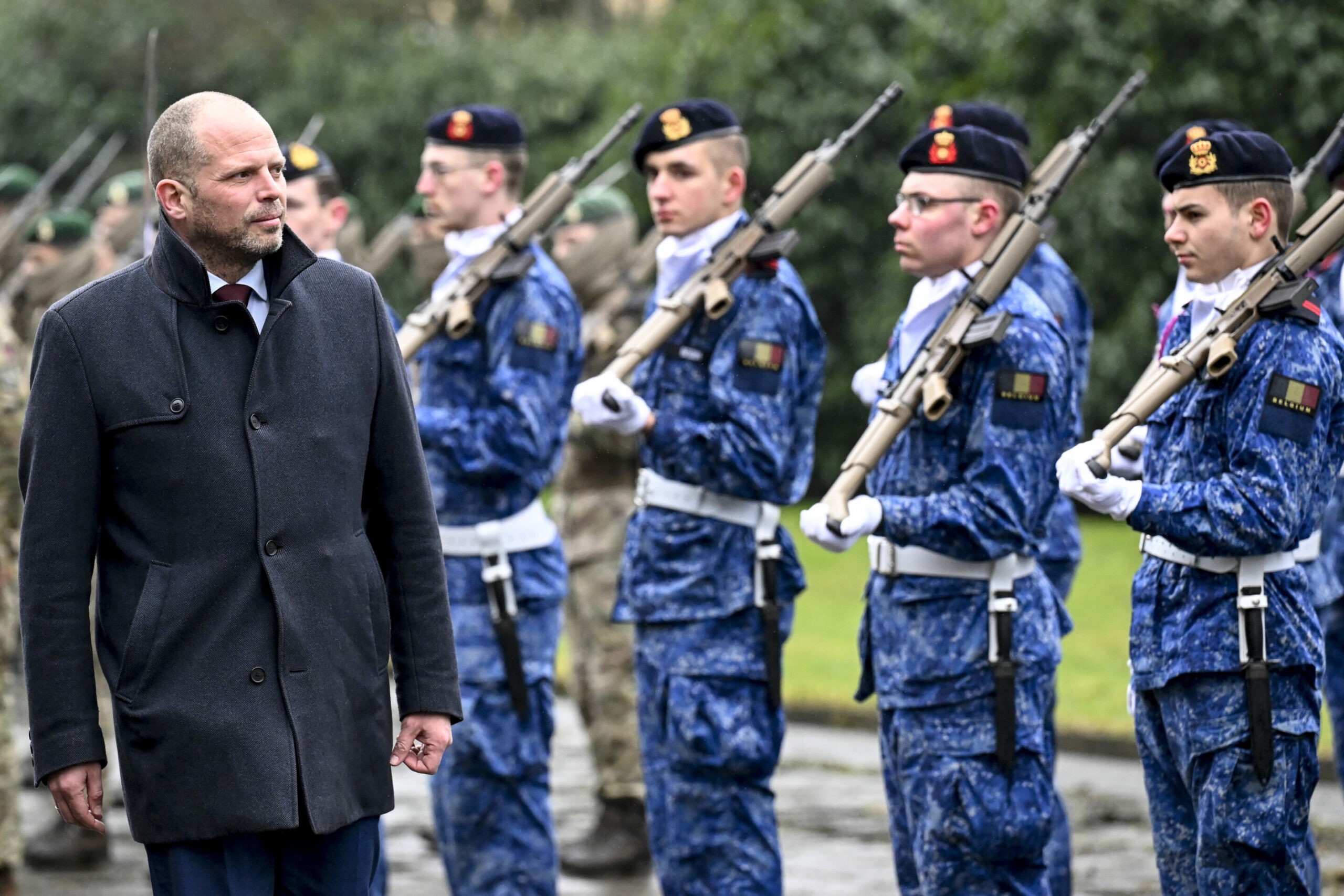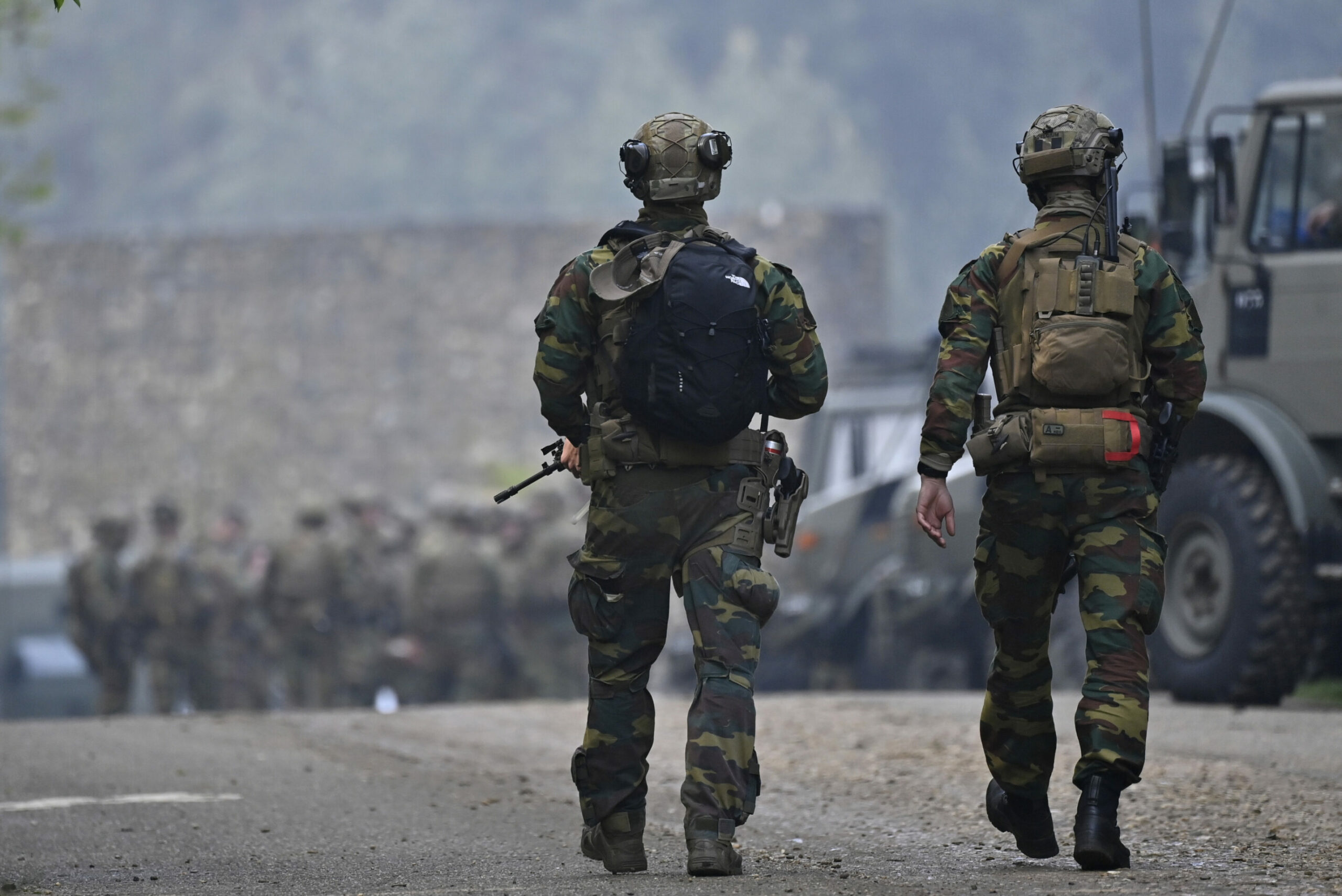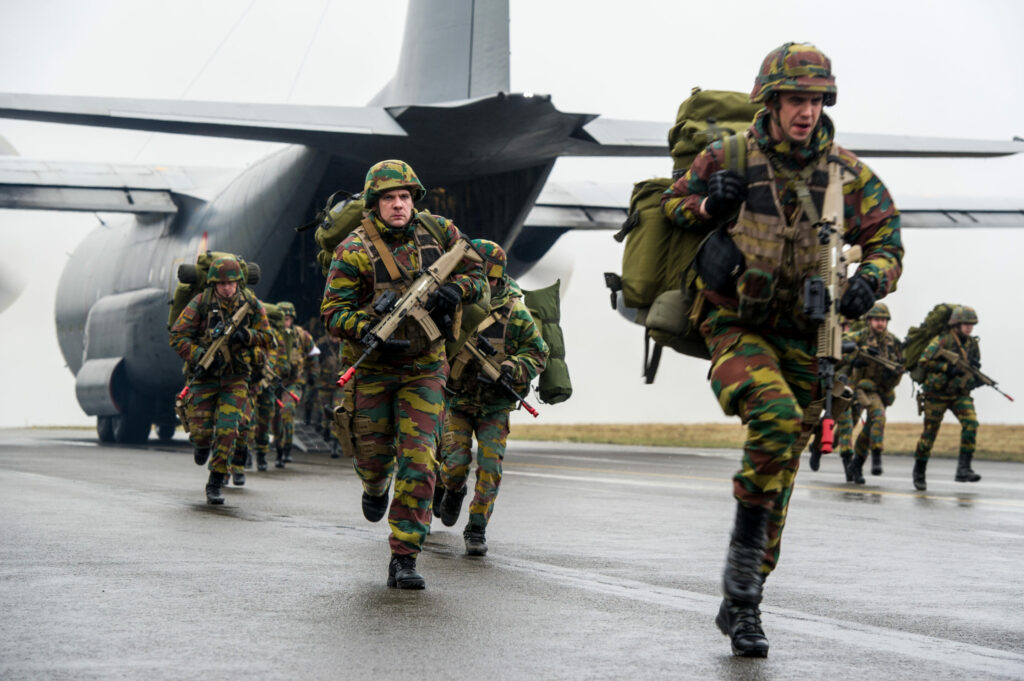30 years ago today, Belgium did away with mandatory military service. With the fall of the Soviet Union ending the Cold War, conscription came to be viewed as archaic and unnecessary. Now, with geopolitical tensions rising and Russian aggression rallying defence budgets across Europe, it is set to return.
According to plans outlined in the new government coalition agreement, Belgium will introduce a form of “voluntary military service” that aims to recruit around 500 young people annually as reservists. In time, they might become fully professional soldiers.
Recruiting young Belgians as reservists aims to create a “strong and deployable reserve” staffed with full- and part-time military personnel. The new combat reserve will be integrated into active duty units and a territorial defence reserve that focuses on securing nuclear sites, embassies and other sensitive sites across Belgium.
According to the agreement, the voluntary service will be a 12-month programme, similar to a civic service engagement. In November, 120,000 young Belgians will be invited to join, plans from the new Defence Minister Theo Francken show. Participants would be paid around €2,000 (net) each month.
Volunteer service
Unlike the previous system, when by the 90s all able-bodied men were required to serve up to 15 months, the new national conscription will be “voluntary”. This means that young Belgians will not receive a summons to report to their local military barracks under the threat of a criminal penalty. Instead, a letter of invitation will encourage them to join the army on their own accord.

New Minister of Defence Theo Francken visits the Defence Headquarters in Evere, Tuesday 11 February 2025. Credit: Belga / Dirk Waem
The new model will replace Belgium’s existing Collective Utility Service (UCN), a military programme that teaches young people skills they can use in their future careers outside of the military. The UCN has effectively been an internship with the army to boost social and professional skills among young Belgians. Candidates for the UCN were often referred by regional employment agencies.
The new voluntary military service is different, as candidates are strongly encouraged to stay in the army and eventually become full-time soldiers.
Plans introduced by former Defence Minister Ludivine Dedonder (Socialist Party) aimed to enlarge Belgium's army from 26,000 in 2021 to 29,000 by 2030. It is possible that the new youth recruitment drive could be one way the new Federal government achieves this target.
Is mandatory conscription likely?
While the initial plan aims to recruit only 500 soldiers from the 120,000 voluntary military service notices that will be sent, Francken has already indicated that this figure could grow. In 1951, conscripts accounted for around 67% of Belgium’s 125,000-strong army.
Officially, Belgium has not formally ended its conscription law – it was only suspended in 1995 and could in theory be reinstated. While Belgium was the first European country to scrap mandatory military service, it wouldn't be the first to reinstate it.
Across Europe, countries are increasingly reintroducing conscription against the backdrop of Russian military expansion. Sweden, Latvia, Lithuania, Croatia, and Serbia have all reinstated conscription in recent years. Austria, Denmark, Finland, Norway, Estonia, Greece and Switzerland all have existing conscription or military service systems.
Others, such as Germany and Italy, are now discussing the possibility of reintroducing conscription. Studies carried out in Belgium show that many Belgians are still favourable to the idea of full military service.
One survey concluded that 60% of people in Flanders are in favour of reinstating military service. An Ipsos survey carried out among francophone Belgians found support to be 55% in Wallonia and 45% in Brussels. These figures likely reflect the views of older Belgians who have found memories of their service.

A Belgian military exercise. Credit: Belga / Dirk Waem
But the new defence minister says that compulsory conscription is not currently on the table. "We are not logistically ready for compulsory military service in Belgium," Francken told Sudinfo on Wednesday. "We do not have the necessary staff to supervise it, nor the adequate infrastructure. We lack barracks, beds… In short, we could not set up such a program today."
Technical challenges
Even in its stripped-back volunteer form, the new plans have raised some eyebrows from public service unions. In a comment to Belgian broadcaster RTBF, Boris Morenville, union leader for the defence sector at the SLFP, said that Belgium lacks the infrastructure to cope with an influx of volunteers.
"Given the disinvestment of the last 30 years in logistical terms, it will be very complicated to facilitate this at a material level." He noted that the Belgian army has long struggled to recruit young people and that the voluntary programme was "unrealistic".
There are further concerns about whether the army will be able to retain the recruits it hires. According to Belgian newspaper Het Nieuwsblad, last year, four in ten candidates did not successfully complete their training with the Defence Ministry. Francken currently puts the drop-out rate at around 35%.
The first selection tests for new recruits under the voluntary military service programme will begin in April or May of 2026. By September 2026, the Belgian defence minister hopes to welcome the first generation of volunteers to the ranks of Belgian reserve trainees.

